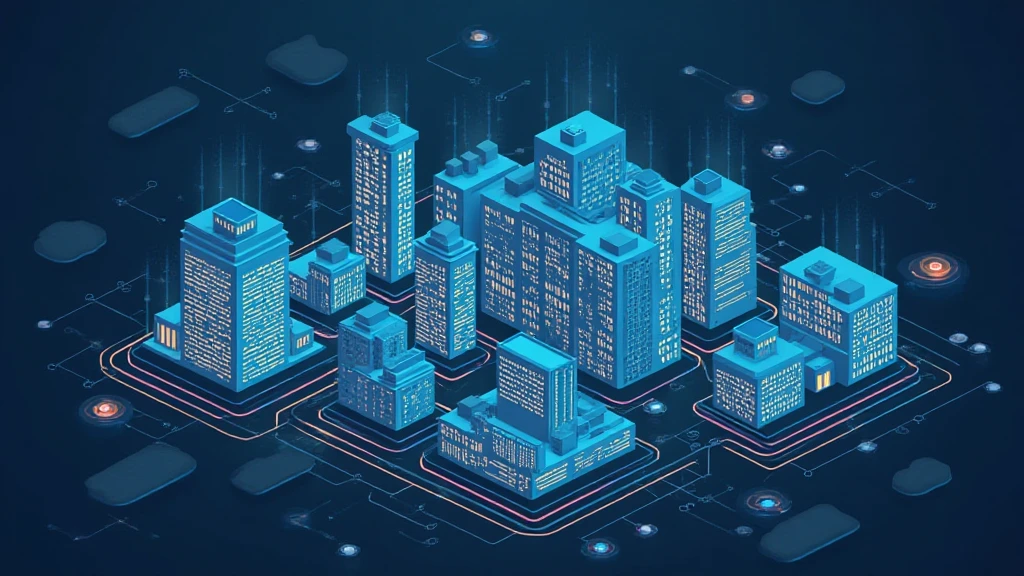Introduction
With the global real estate market valued at approximately $280 trillion, the potential for innovation is enormous. In 2024, fractional real estate investment platforms are projected to grow by 30% as investors seek ways to diversify their portfolios. These platforms offer a fresh approach to property ownership, allowing individuals to invest in real estate without needing substantial capital upfront.
The emergence of these platforms is particularly significant in regions like Vietnam, where the real estate market has experienced a surge in investor interest, supported by a user growth rate of over 25% annually. This article will delve into fractional real estate investment platforms, exploring their benefits, risks, and the technologies that make them possible.
Understanding Fractional Real Estate Investment
Fractional real estate investment offers a method for multiple investors to combine their resources to purchase a property. Think of it as sharing the cost of a vacation home; instead of one party bearing the entire expense, several investors share ownership and benefit proportionally from rental income and any increase in property value.

This model not only makes real estate investment accessible to a broader audience but also brings liquidity to an otherwise illiquid asset class. In an ever-volatile economy, platforms can help reduce the barriers to entry and democratize real estate investments.
The Technology Behind Fractional Ownership
At the core of these investment platforms lies blockchain technology, ensuring transparency and security in transactions. Tổ chức một nền tảng mã hóa giúp nâng cao tính minh bạch và bảo mật trong quy trình giao dịch, tạo niềm tin cho nhà đầu tư. Here are some key features:
- Smart Contracts: These self-executing contracts automate the property management process and ensure that terms are met before transactions are executed.
- Tokenization: This process converts real estate assets into digital tokens, enabling easier division, transfer, and liquidity.
- Decentralization: By removing middlemen, transaction costs are reduced, and investors can directly engage with property assets.
Advantages for Investors
Investing through fractional ownership platforms offers numerous benefits:
- Reduced Capital Requirement: Investors can participate with smaller amounts, making it accessible for individuals who may not have the funds for full ownership.
- Diversification: Fractional ownership allows investors to spread their capital across multiple properties, reducing risk.
- Passive Income: Investors can earn rental income without the hassles of property management, as these platforms typically handle those details.
Case Study: Vietnam’s Emerging Market
Vietnam’s property market is gaining traction, particularly among young professionals seeking investment opportunities. According to local reports, 60% of millennials in Vietnam are interested in investing in real estate. This presents a unique opportunity for fractional real estate platforms to thrive, catering to a demographic eager to enter the property market without the significant financial burden.
Challenges Facing Fractional Real Estate Platforms
Despite the numerous advantages, there are challenges that investors must consider:
- Regulatory Uncertainty: As with any emerging technology, regulations can lag behind innovation, potentially posing risks to investors.
- Market Volatility: The real estate market can be unpredictable, and property value fluctuations can affect investment returns.
- Trust Issues: New platforms may struggle to gain the trust of potential investors, particularly in regions where blockchain technology is still viewed with skepticism.
A Closer Look at Security Standards
Security is paramount when it comes to investing via fractional platforms. With tiêu chuẩn an ninh blockchain, platforms can implement strong measures to safeguard investments:
- Data Encryption: Secure algorithms protect sensitive information from unauthorized access.
- Multi-Factor Authentication: Additional authentication layers prevent unauthorized access to investor accounts.
In 2025, it is expected that 85% of successful blockchain projects will incorporate advanced security standards to ensure investor trust.
The Future of Fractional Real Estate Investment
As fractional real estate investment platforms continue to mature, they are likely to reshape the dynamics of property ownership. By 2026, it is anticipated that the global market for fractional ownership could reach $45 billion.
Emerging trends include:
- Integration with AI: Predictive algorithms may assess property values and help investors make informed decisions.
- Improved User Experience: Enhanced interfaces and educational tools will make platforms more appealing to novice investors.
- Expanded Markets: As blockchain adoption increases, more companies will enter the fractional real estate space, creating competition and innovation.
Conclusion
Fractional real estate investment platforms present a promising future for property ownership. They democratize access to real estate, reduce risks, and integrate advanced technology. As the Vietnamese market continues to grow, platforms that embrace tiêu chuẩn an ninh blockchain are well-positioned to succeed. Investors must remain informed and cautious, balancing fire and opportunity.
For more information about the latest trends in cryptocurrency and real estate investments, visit officialcryptonews. As the landscape evolves, staying updated is critical for maximizing investment potential.
About the Author
Dr. Nguyen Tran, an expert in blockchain technology and real estate investment, has published over 10 papers in internationally recognized journals and has led audits for prominent real estate projects.




